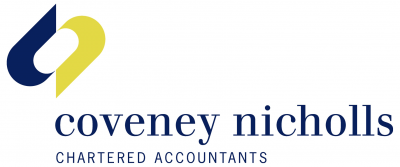Construction projects often involve tight timelines, a lot of moving parts and, quite often, slim profit margins. With multiple teams, frequent job site changes, and complex costs to manage, staying on top of the finances is a significant task. Here’s where construction accounting software can make a real difference, helping construction firms streamline their finances, save time and reduce costly errors.
Why standard accounting software falls short
The construction industry has specific needs that go beyond standard accounting functions. While general-purpose software may handle basic bookkeeping, it lacks the tools to deal with project-based costing, job-specific expenses and flexible budgeting – all essential for construction work. This is where specialised software can make a difference. With tailored construction accounting software, firms gain features that track costs by job or phase, manage complex payroll requirements and automate billings, improving accuracy and efficiency.
Key benefits of construction accounting software
Switching to software designed specifically for the construction industry offers many benefits, helping firms meet the unique demands of their projects. Here are some of the main advantages.
1. Enhanced project costing and tracking
One of the biggest challenges in construction accounting is managing costs at a project level. Traditional accounting software struggles to handle the granularity required for accurate job costing, often leading to inconsistencies. Construction accounting software, however, makes it easier to assign costs to specific jobs, enabling precise budgeting and monitoring of profitability per project. With detailed cost-tracking tools, construction firms can gain a clearer understanding of where money is going, making it simpler to manage budgets and reduce wastage.
2. Simplified compliance with CIS and VAT
The Construction Industry Scheme (CIS) places unique requirements on contractors and subcontractors, adding complexity to compliance. Construction accounting software can simplify CIS compliance by automatically calculating deductions, filing reports and managing payments to subcontractors, reducing the risk of HMRC penalties. Additionally, automated VAT tracking helps ensure compliance with Making Tax Digital (MTD) requirements, which are mandatory for all VAT-registered businesses.
3. Streamlined payroll and time tracking
Construction payroll can be complicated, often involving a mix of full-time staff, subcontractors and temporary workers. Construction accounting software is designed to handle this complexity, with features that support variable pay rates, multi-state tax management and integration with time-tracking tools. By using software with built-in payroll features, construction firms can save time on manual calculations, reduce payroll errors and streamline payments to workers.
4. Real-time data for better decision-making
In construction, having up-to-date financial information is essential for making informed decisions, particularly when it comes to budgeting and cashflow. Construction accounting software provides real-time data, allowing firms to monitor project finances as they progress. Access to live data not only aids in tracking profitability but also helps identify issues early on, allowing for swift adjustments to keep projects on track and within budget.
5. Improved cashflow management
Managing cashflow is a constant challenge for construction businesses due to factors such as delayed payments, high upfront costs and the need to purchase materials before receiving income. Construction accounting software can help improve cashflow management by tracking receivables, generating automatic reminders for overdue payments and offering features for better expense forecasting. With a clearer view of incoming and outgoing cash, firms are in a stronger position to negotiate with suppliers, plan for new projects and avoid cash shortfalls.
How to choose the right construction accounting software
The construction accounting software market offers a range of solutions, each with unique features and pricing. Selecting the right software is essential, and here are some factors to consider.
1. Scalability
Choose software that can grow with your business. If you’re a small construction firm today but plan to expand, invest in a solution that supports more projects, additional users and more complex reporting as you scale up.
2. Integration with existing systems
Look for software that integrates well with your existing tools, such as project management software or time-tracking applications. Seamless integration can save time and reduce errors by eliminating duplicate data entry across platforms.
3. Support and training
Not all construction teams have in-house accounting experts, so consider software providers that offer reliable customer support and training resources. Training ensures your team can use the software effectively and ongoing support helps resolve any issues quickly.
4. Cost vs features
While some software options offer extensive features, they might come with a higher price tag. Weigh the costs of the software against the benefits it provides and the features your firm truly needs. Often, investing in higher-quality software pays off in time savings and improved accuracy.
Popular construction accounting software options in the UK
For firms considering specialised software, several solutions cater to UK construction businesses. Here are some popular options.
- Sage for Construction: A widely trusted name in the UK accounting field, Sage offers a suite of construction-specific tools for project costing, payroll and compliance.
- Xero with construction add-ons: Xero is a general accounting solution but, with industry-specific add-ons like WorkflowMax and Fergus, it becomes a powerful tool for smaller construction businesses.
- COINS: Known for its scalability, COINS is suited to larger firms with its comprehensive project management, financial reporting and compliance features.
Each of these options has distinct features and pricing models, so it’s worth taking the time to assess your needs and trial different solutions before committing.
A step toward smoother operations
Investing in construction accounting software tailored to the industry’s needs can help construction firms keep better track of finances, simplify payroll and compliance, and make better-informed decisions. With the added benefit of real-time data and job-specific tracking, these tools can transform the way construction businesses handle their finances. By choosing the right software, you’re not only investing in better financial management but also in a more efficient, productive future for your business.
Need assistance choosing the right construction accounting software? Then get in touch with us right away.

